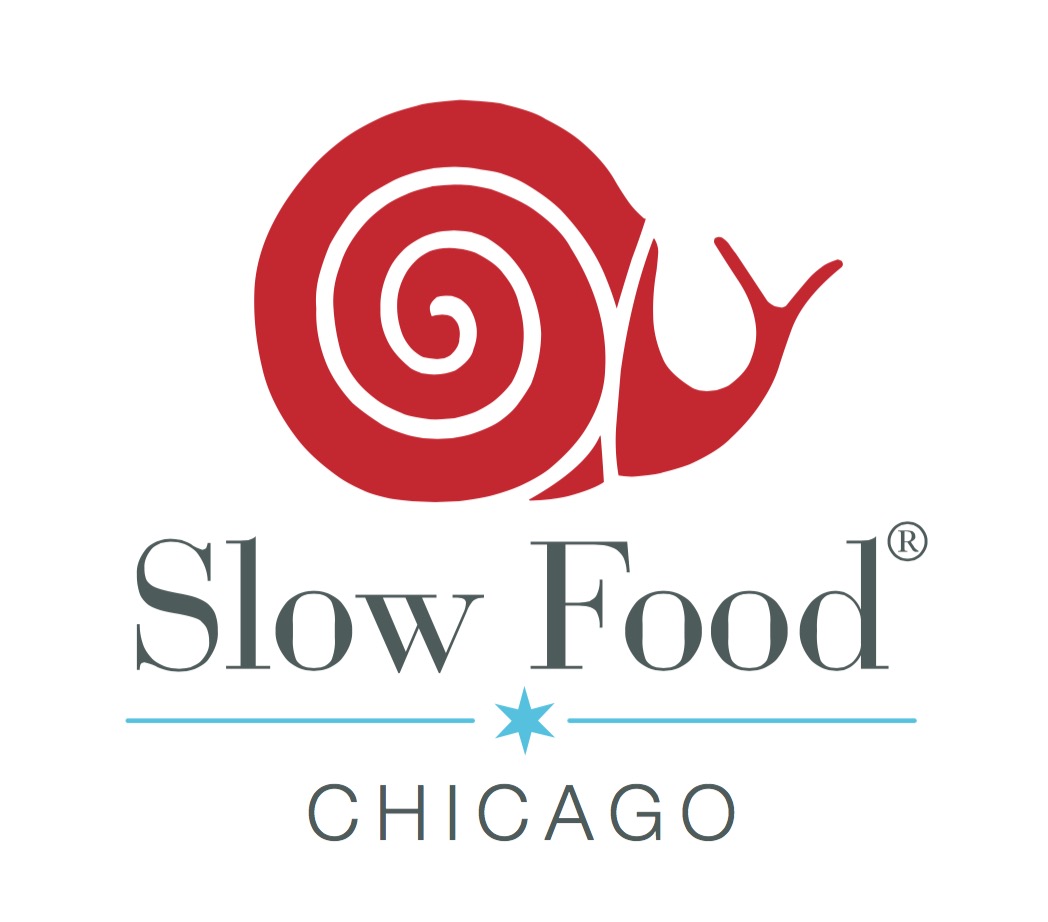Slow Food Chicago Member May Discount Partner Profile : Angelic Organics
/For Slow Food Chicago members, you have just a few days left to take advantage of May's Year of Slow Food member discount on programming from Angelic Organics. Read on below to get some insight into how Angelic Organics got started, and how they are fighting for good, clean and fair food for all.
The following profile is as answered by Angelic Organics' Associate Executive Director, Deb Crockett.
What was the idea behind Angelic Organics Learning Center? How did you start?
In the fall of 1998, the core group of shareholders in Angelic Organics Community Supported Agriculture (CSA) farm met for a week to dream about how to best respond to people wanting to learn from and about Angelic Organics. Farmer John Peterson wanted to support educational efforts on the farm, but needed to focus his own energy on growing vegetables. So, the core group decided to start a non-profit dedicated to food & farm education; founders Tom Spaulding and Neddy Astudillo packed their bags and moved to Caledonia from Chicago to launch the Learning Center as a non-profit the following spring.
Since then, we’ve stayed true to our mission to build sustainable local food and farm systems through programs that change the way people farm and eat, so that the food and farm economy is healthy, green, fair and culturally-expressed. We offer various food + farm workshops, school field trips, summer day camps, and customized group programs on Angelic Organics farm. We facilitate urban farming programs in Rockford and Chicago (Englewood) that increase access to good food, growing opportunities, and entrepreneurial skills. We support the next generation of sustainable farmers through our yearlong Stateline Farm Beginnings training course, the Upper Midwest CRAFT farmer training alliance, and various farm financing programs.
What would you be doing right now on a typical workday?
My days are so varied! This next week, I’ll teach a class for preschoolers and their parents, meet with community partners, evaluate our work, cook breakfast for our staff, do hive checks for our three hives, and address whatever other issues and ideas come forward from our talented and dedicated staff team. As much as the weather permits, I take my computer and meetings to the porch of our whole tree architecture building, with good views of goats, chickens, cattle and more! By the way, the pigs just went out to pasture today and are having a fantastic and comical romp in the field.
What’s the best part about your job? The hardest part?
The best part is when people make a connection through a Learning Center program--with a farm, with their food, with another person, or with their own personal calling. You see this in hundreds of small transformations that lead to a larger impact: from a boost in a child’s self confidence after milking a goat, to a farmer who is able to finally leave their day job to pursue their dream. The hardest part is that there is never enough time to do everything.
What do you think is the biggest obstacle for Chicago’s food systems to overcome?
Quite simply we need more farmers connected directly with more people who want good food. And, by “want good food” I mean people who understand the value of healthy, local, connected food and are willing and able to pay enough for their food that farmers can make a living wage while growing our very sustenance.
How does Angelic Organics Learning Center’s work relate to the Slow Food objectives (good, clean, fair food)?
The Learning Center considers "good food” as food coming from a sustainable local food and farm economy that satisfies a “Quadruple Bottom Line”, which we define as Economy, Equity, Ecology and Expression. Another way of talking about it is that good food is healthy (meets the needs of our bodies and communities), green (meets Earth’s needs), fair (protects the rights of all workers and eaters and gives farmers a living wage), and culturally expressed (protects freedom of expression and culture).
Our tagline is “Learn Grow Connect,” and this resonates throughout all of our programs and work. We provide opportunities for eaters to learn skills to grow, get and prepare good food at three locations in Rockford, Chicago, and Caledonia. Through our farmer training programs, we support beginning farmers in overcoming obstacles to farm viability, for instance, helping them to write a realistic business plan, to manage saving for a farm implement, or to connect with a mentor. We always work in partnerships to more effectively share best practices, build community, and change culture, laws, or circumstances to favor the local food system. We believe that people from all sectors of our food system need voice and opportunity in getting access to good food.
What surprising homesteading hobby do you think will trend in 2016?
Using backyard plants for medicinal purposes: elderberry cough syrup, plantain poultices, and a variety of teas and tinctures from many plants.
Favorite food related social media account to follow?
I asked my colleagues for help on this one, and their suggestions ranged widely: try The Sporkful (https://twitter.com/thesporkful), EatLocalGrown, Punk Domestics, Civil Eats, Food + Tech Connect,; Chicago Farm Report; Natural Awakenings
Is there anything else you’d like us to share about your business?
Come join us for an upcoming workshop or event! Visit www.learngrowconnect.org/ to sign up for a skills workshop or event on Angelic Organics farm, or create your own experience through a customized program. We also encourage people to attend our Peak Harvest Farm Dinner on July 28 at Galleria Marchetti in Chicago. We will be honoring Rick Bayless & Deann Groen Bayless of Frontera Farmer Foundation. Guests will enjoy cuisine & cocktails made from locally sourced ingredients, live music, adorable farm animals, and special guests including emcee Monica Eng! Tickets & info can be found at www.learngrowconnect.org/farmdinner. We also offer numerous volunteering or job opportunities at www.learngrowconnect.org/jobs.
















